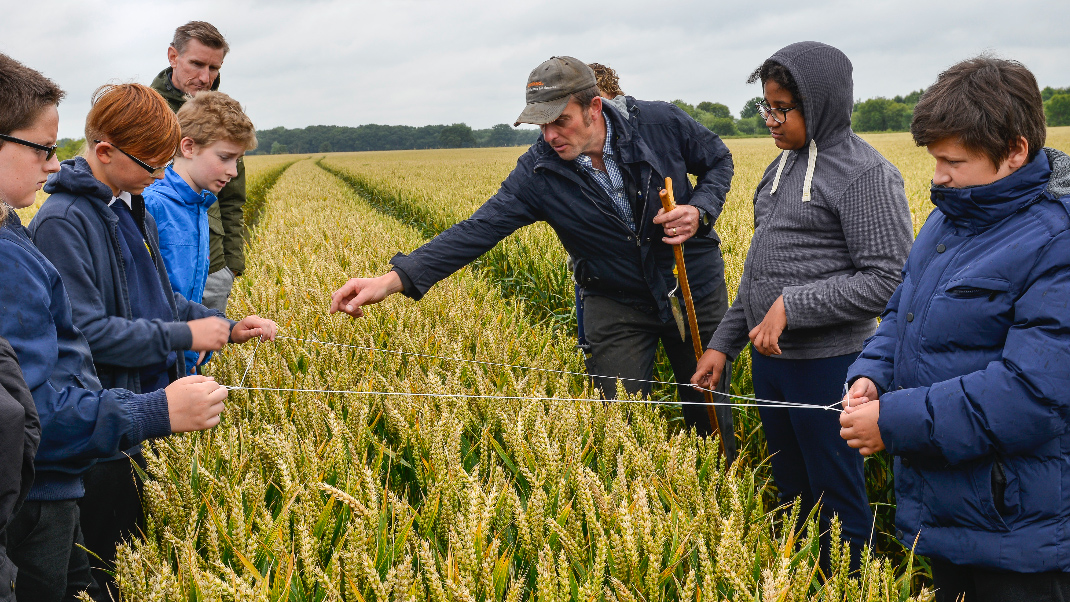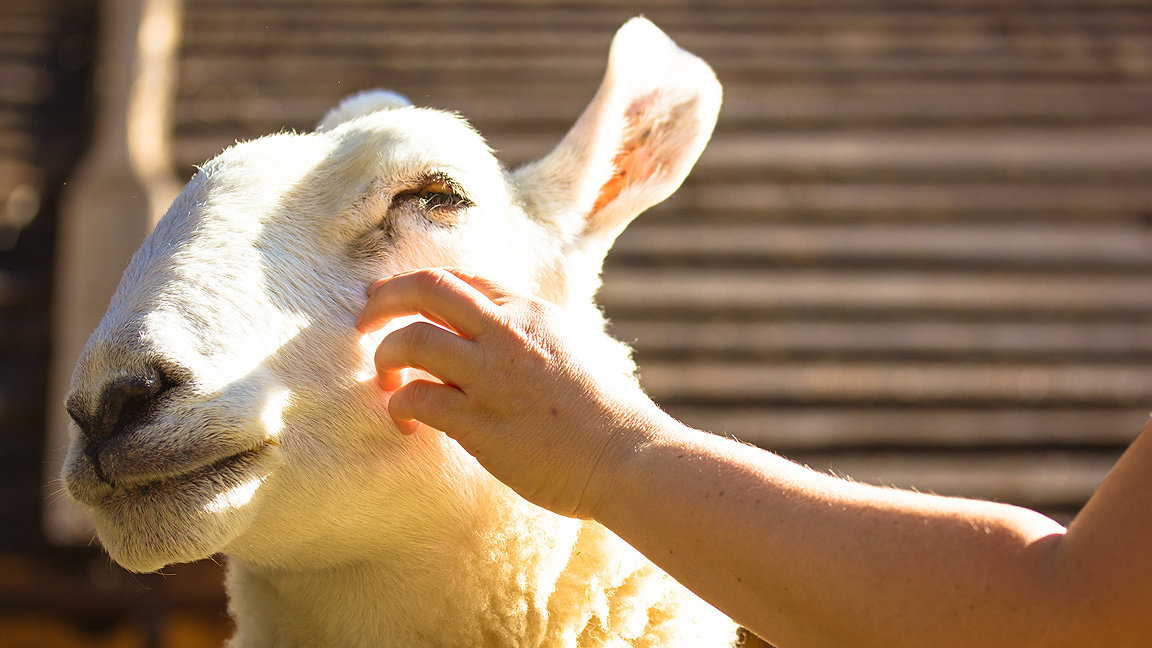
UK farmers can be rewarded for welcoming school visits to their farms through the government's Countryside Stewardship scheme. Educational access payments (ED1) have been available since last year as part of Mid Tier stewardship agreements. But many farmers who are on or planning to claim for Mid Tier are missing out on funding as the payments were not well publicised.
Applications for the new stewardship scheme opened in February and close on 29 July. The Rural Payments Agency (RPA) has also agreed that farmers whose Mid Tier agreement started in January but were unaware of the ED1 option can add educational access payments to their agreement retrospectively. Interested farmers can contact the RPA to request this.
The Country Trust – a charity that matches schools and farms to give disadvantaged children the chance to experience the countryside – is encouraging all farmers who are eligible and willing to host visits to include ED1 in their agreements.
Farmers receiving payments for working in protected landscapes such as national parks and areas of outstanding natural beauty can also access funding for capital items, and for the time taken to help pupils discover, enjoy and understand the countryside and its cultural heritage. This funding is available until March 2024.
Trust supports farmers in arranging visits
Christy Willett, a farmer in Essex who has hosted visits under the scheme, says: 'It is hugely rewarding welcoming children to our farm. There's nothing better than watching the light bulb moment when a child connects something we are doing to their food.'
If you are uncertain about hosting visits, The Country Trust can help. Farmers may worry about facilities, health and safety, insurance or contacting schools, or may be concerned that they have no teaching experience, or nothing on the farm that may interest children.
But the trust's locally based farm discovery coordinators can support farmers with every part of arranging a visit, from identifying the school, planning the day, providing guidance, writing a risk assessment and supporting them on the day. Whether you have an arable, fruit, livestock or a mixed farm, we can guarantee the children will have a day of discovery and will be thrilled to have met a farmer.
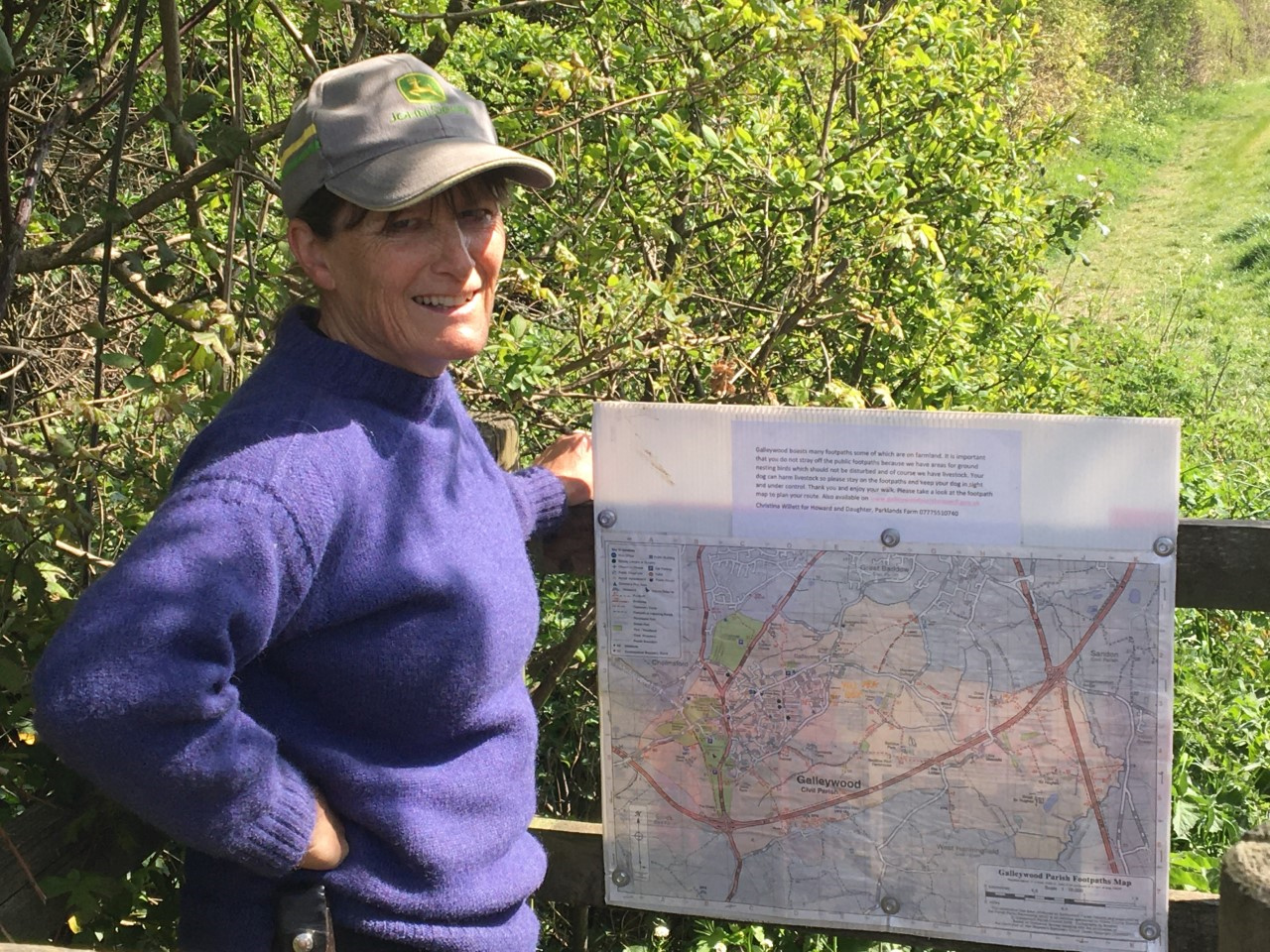
What children gain from farm visits
Children from low-income families may not go on holiday or day trips, and many have never left their neighbourhood. Indeed, with more than a year of lockdowns, there are plenty of children who have reached the age of 8 or 9 without ever going on a school visit.
A school trip to a farm is a chance to discover another world. Our visits offer the balance of emotional, physical, social and educational development that teachers seek for their pupils, especially children who have been most affected by the pandemic.
The trust's aim is for children to have opportunities to discover where their food comes from, to develop curiosity and confidence and make connections between farming, their own health and well-being and that of the world around them. Farm visits can bring a wide range of primary curriculum subjects to life:
-
maths – farming is all about multiplication
-
design technology – how does that combine harvester work?
-
science – lifecycles, habitats
-
history – why is horsepower a measurement of engine power?
-
geography – comparing where they live to the location of the farm.
The Countryside Code can also be woven through visits, so the children can see for themselves why this is so important. But there's much more. In preparing feed for dairy or beef cows, children can be encouraged to think about their own health and nutrition. When learning how to be around animals, they can reflect on their own behaviour and emotions.
Having the freedom to run in green open space, they can discover ways of supporting their own well-being. Seeing cows being milked or collecting eggs also gives children first-hand experience of the source of their food.
Seeing and experiencing so many new and exciting things can encourage quiet children to ask questions and low-attaining children to shine, while children from chaotic and stressful homes have time and space to breathe.
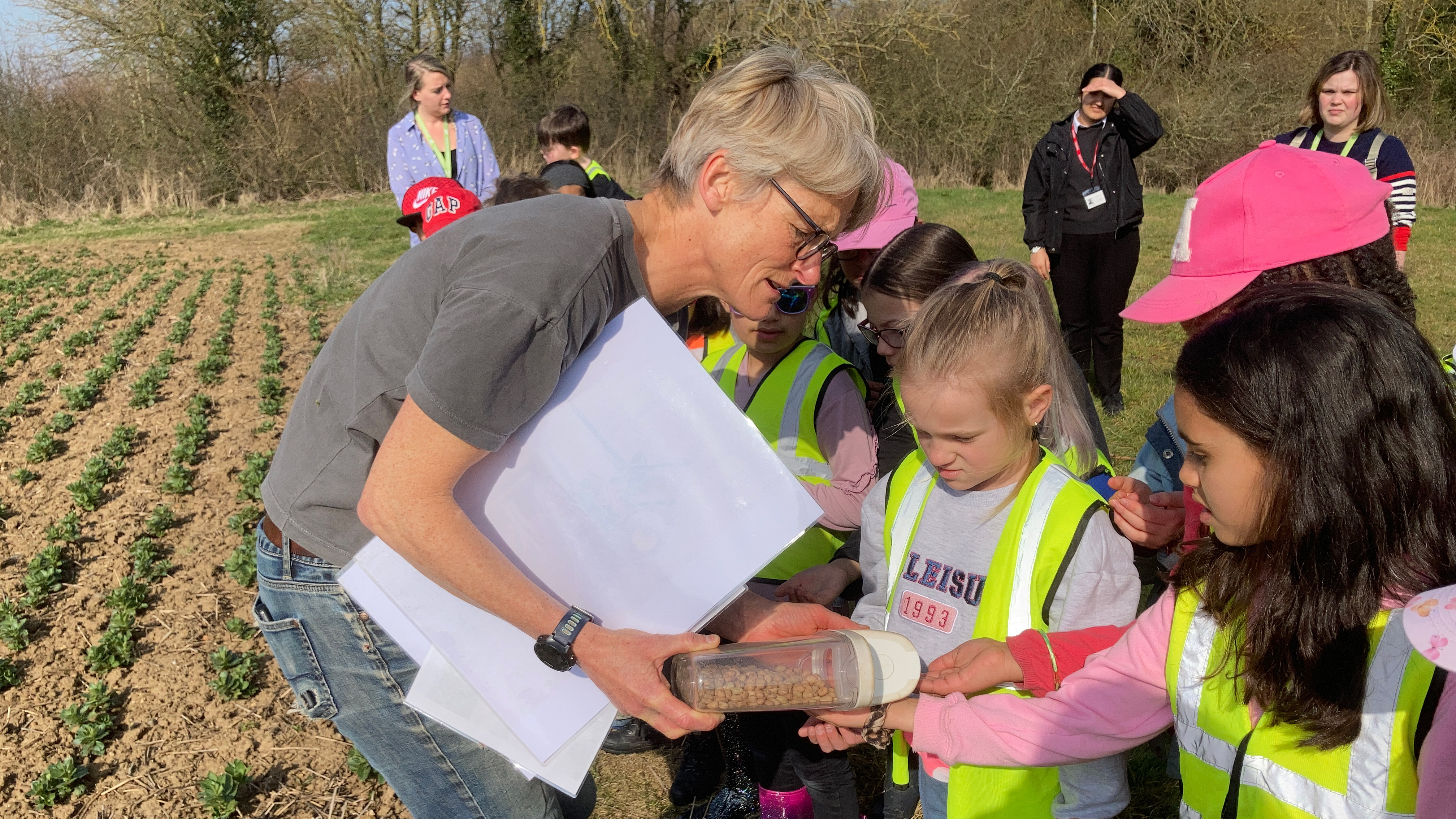
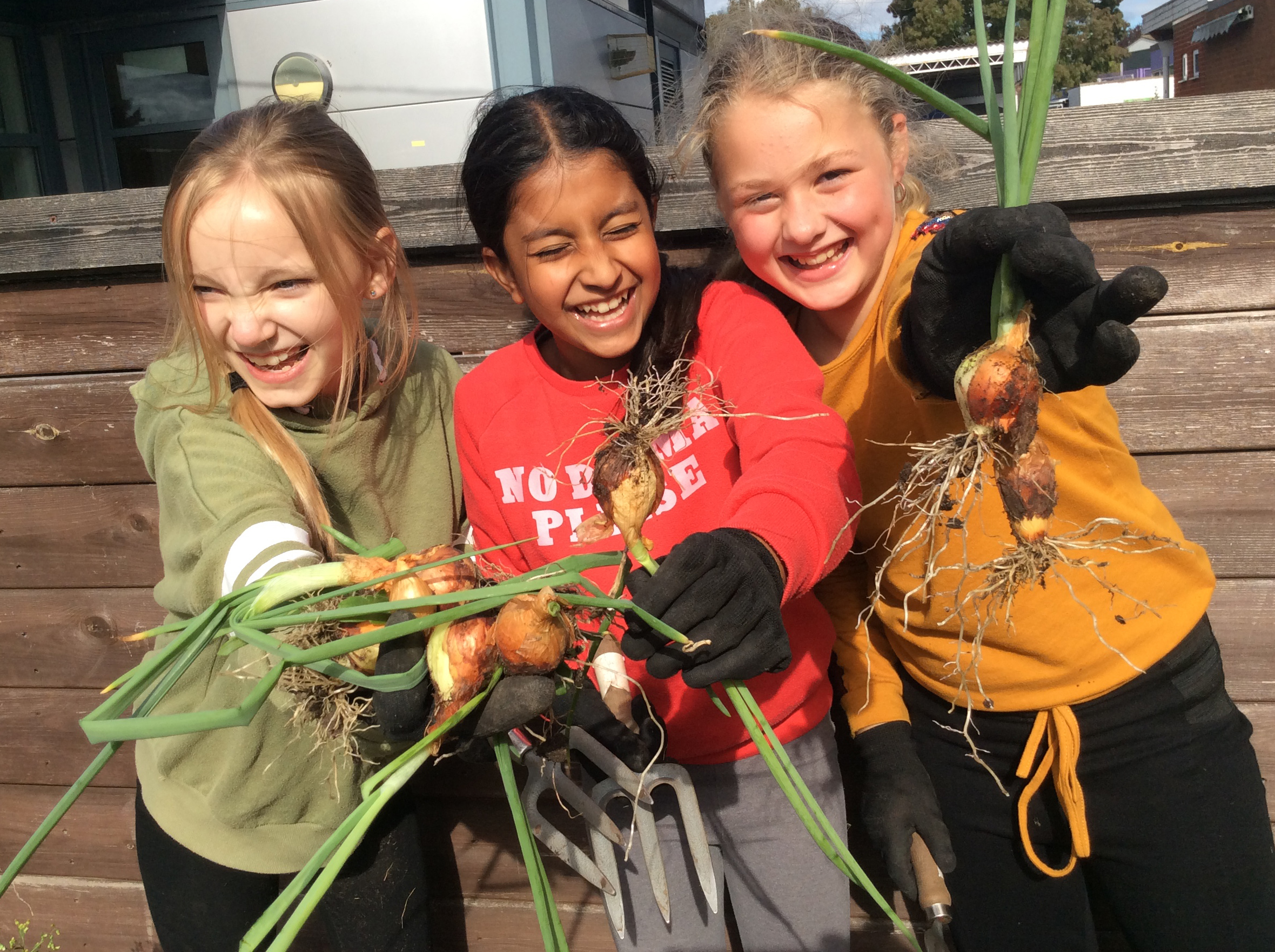
Requirements for farmers
The demand for visits is greater than the availability of farmer hosts, and we urgently need more, particularly on farms within an hour's drive of large urban areas.
Although around 300 farmers currently work with us, our aim is to have a ring of host farms around a range of towns and cities. Farms accessible on foot or by public transport are also ideal.
If you are interested in finding out more and live in an area where The Country Trust is working – throughout England and North Wales, in urban and deprived areas, except, at the moment the South West and Cumbria— a farm discovery coordinator will visit the farm and make an initial assessment about its suitability for school visits. As well as exploring with the farmer what stories can be told, they will look at six simple considerations:
-
coach access
-
insurance: farmers will need to have at least £5m public liability cover and inform their insurers they intend to host school visits, which shouldn't unduly affect the premium
-
handwashing facilities: hygiene is important, but facilities don't need to be fancy; the trust can bring additional mobile equipment
-
toilets: the number needed depends on how many children are coming and what age they are, as younger children need to go more often
-
an area for lunch: this should be clean, and ideally undercover
-
risk assessments: host farmers must assess the risks for a school visit, but the trust can offer support; we ask teachers to visit the farm in advance so we can discuss any children's specific needs, and update the risk assessment.
If toilet and lunch facilities are difficult to provide, a nearby village hall could be used.
There are around 1m primary age pupils eligible for free school meals in England, and one in four children in England live in poverty. We can't solve all their problems – but with the help of farmers, we can empower them to be confident, curious and connect with the land.
